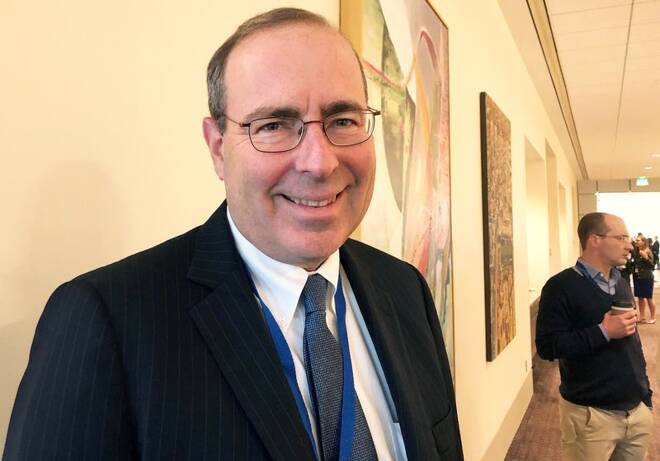Advertisement
Advertisement
Fed’s Barkin: Bank deposit flows “stable,” inflation still “hot”
By:
By Howard Schneider RICHMOND, Virginia (Reuters) - Deposit flows in U.S. banks appear "relatively stable," while inflation remains too high and may well take longer than expected to decline, Richmond Federal Reserve Bank president Thomas Barkin said in comments that kept the policy focus on inflation despite recent stress in the banking industry.
By Howard Schneider
RICHMOND, Virginia (Reuters) – Deposit flows in U.S. banks appear “relatively stable,” while inflation remains too high and may well take longer than expected to decline, Richmond Federal Reserve Bank president Thomas Barkin said in comments that kept the policy focus on inflation despite recent stress in the banking industry.
“It’s worth remembering that not every bank failure becomes Lehman Brothers,” Barkin said, referring to the banking collapse that helped spark a financial crisis 15 years ago.
“There are still, to be sure, a few individual banks working through their own issues,” Barkin said in comments prepared for delivery to the Virginia Council of CEOs. But “banks have worked with intensity to ensure they have adequate liquidity. And, as I’ve talked to banks in my district, I’ve been encouraged by the resilience I’ve seen.”
Barkin did not comment on whether he was yet convinced that another rate increase would be needed when the Fed meets May 2-3, but said he would be “nimble” and open to options as the Fed works on “reconciling the strength of the recent data with the potential for weakness coming from the banking system.”
It was possible, he said, that the failures of Silicon Valley Bank and Signature Bank would lead banks to become more conservative, tighten credit more than expected and, coupled with the impact of tight U.S. monetary policy, “bring inflation down relatively quickly.”
“It is too early to know whether that will happen now, or not,” said Barkin, who does not have a vote this year on the policy setting Federal Open Market Committee.
In the meantime Barkin said there were several reasons “why it could take time for inflation to return” to the Fed’s 2% target from a current level more than double that.
Among those reasons, Barkin said he felt businesses had become more emboldened to raise prices after years in which they felt they had to price aggressively in order to protect market share.
(Reporting by Howard Schneider; Editing by Chizu Nomiyama)
About the Author
Reuterscontributor
Reuters, the news and media division of Thomson Reuters, is the world’s largest international multimedia news provider reaching more than one billion people every day. Reuters provides trusted business, financial, national, and international news to professionals via Thomson Reuters desktops, the world's media organizations, and directly to consumers at Reuters.com and via Reuters TV. Learn more about Thomson Reuters products:
Advertisement
